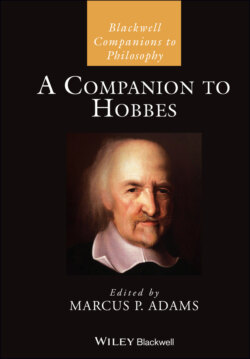Читать книгу A Companion to Hobbes - Группа авторов - Страница 40
2.3 Conclusion
ОглавлениеA recent commentator has astutely observed that Hobbes’s expansive philosophy of “accidents” like space, time, and causality, always seem to involve “a curious two-fold description of our ideas” (Leijenhorst 2002, 107). In the case of causality, for example, Hobbes indicates he is concerned primarily with the accidents of bodies considered subjectively, i.e., “that faculty of any body by which it works in us a conception of itself” (EW VIII.103; see Leijenhorst 2002, 157). But he is also concerned with real causal connections. A similar and parallel dual-aspect is evident in the case of both space and time. But, as we have seen above, wholesale subjectivism about space and time cannot support Hobbes’s – or the Stoics’ – cherished and ambitious program in mechanistic science. God, of course, is not an accident; but like the “incorporeals,” space, time, and causality, it is difficult to find a place for the traditional attributes of a transcendent God within a thoroughly materialist and mechanist cosmology. My suggestion is that we can better understand Hobbes’s curious “twofold” metaphysics if we align his project with the overarching worldview originating at the Stoa of Athens.
